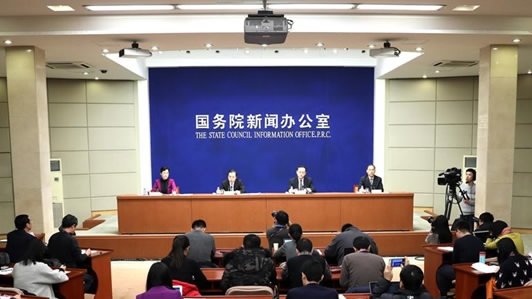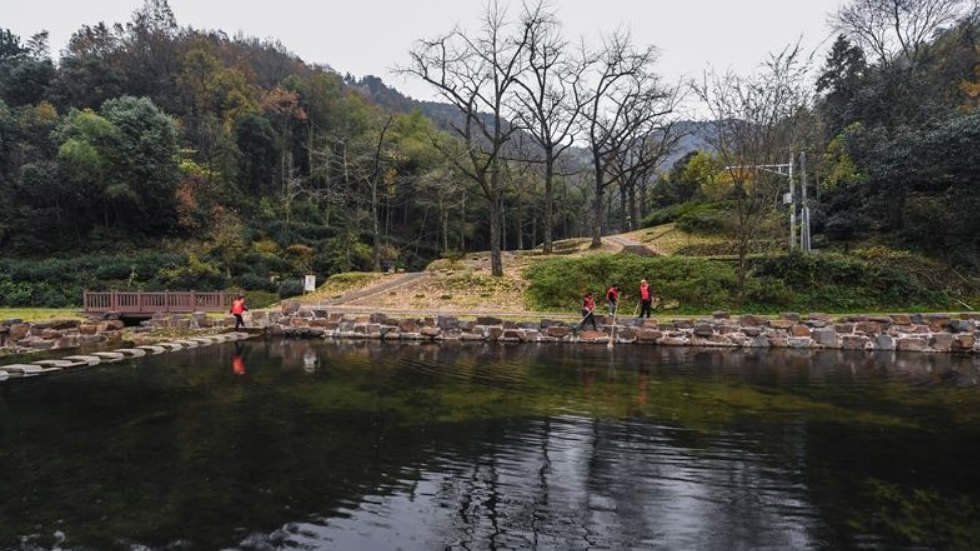
Politics
23:15, 05-Jan-2018
Chiefs handed mandate to improve management of China's lakes
CGTN

The important role of managers of lakes in the preservation and protection of waterways under their control was stressed during a news conference on Friday by China's State Council Information Office.
Since the full implementation of the river chief system in November 2016, several administrative regions have appointed lake chiefs to take on specific responsibilities and coordinate efforts across the country.
And in November last year, the "Leading Group for Deepening Overall Reform of the 19th Communist Party of China Central Committee" officially adopted "Guidelines on Implementing the Lake Chief System” to clarify the responsibilities, supervision and assessment of chiefs at all levels.

China's Vice Minister of Water Resources, Zhou Xuewen. /CGTN photo
China's Vice Minister of Water Resources, Zhou Xuewen. /CGTN photo
Vice Minister of Water Resources Zhou Xuewen said the lake chiefs should determine objectives and tasks, develop and formulate “one lake, one strategy," and coordinate efforts to address major issues and solve prominent problems such as lake reclamation, encroachment on water bodies, excessive discharge of sewage and illegal sand mining.
He said the overall situation for China's lakes is "not optimistic" as only around a quarter have good quality water, nearly 58 percent are ranked as "medium quality" and 17.8 percent are thought to have "poor quality" water.
For the further improvement of lake management and protection, Zhou said the chiefs will tighten control over the use of lake waters and strictly oversee lake development and utilization.

Staff workers and volunteers salvage floating waste in Fangyan Village of Changxing County, east China's Zhejiang Province, Nov. 30, 2017. /Xinhua Photo
Staff workers and volunteers salvage floating waste in Fangyan Village of Changxing County, east China's Zhejiang Province, Nov. 30, 2017. /Xinhua Photo
They are also mandated to strengthen the management and protection of shorelines, implement zoning management, strengthen water protection and pollution prevention measures, implement the most stringent water resource management and sewage discharge system, and strictly control the amount of discharged pollutants.
They will be required to increase efforts to improve lake environments and carry out ecological management and restoration practices, in addition to improving law enforcement and regulatory mechanisms.
1km

SITEMAP
Copyright © 2018 CGTN. Beijing ICP prepared NO.16065310-3
Copyright © 2018 CGTN. Beijing ICP prepared NO.16065310-3